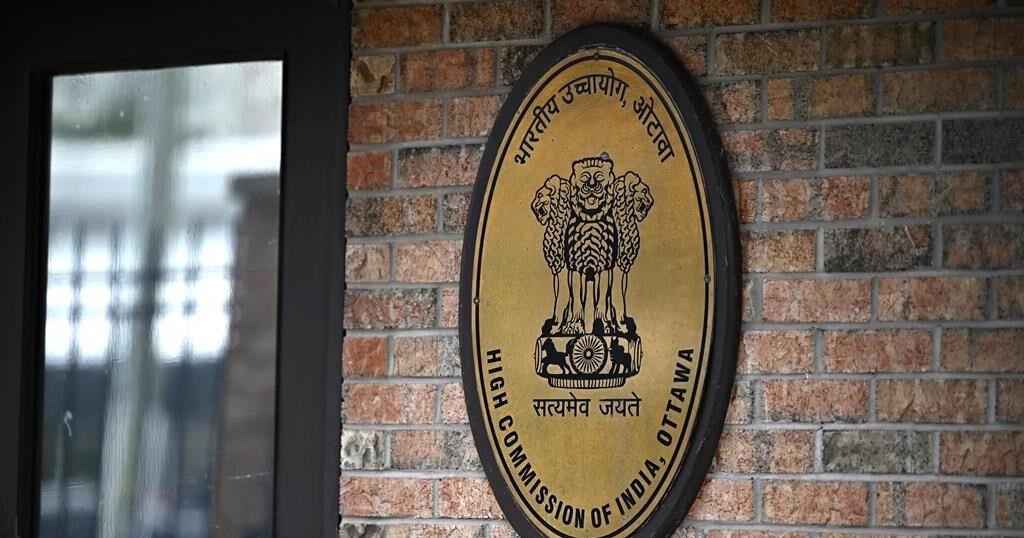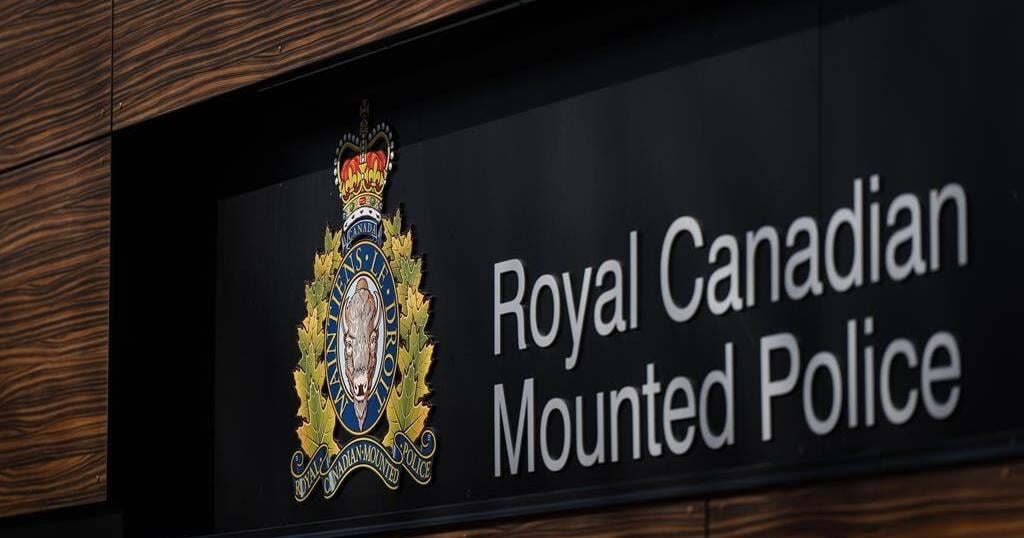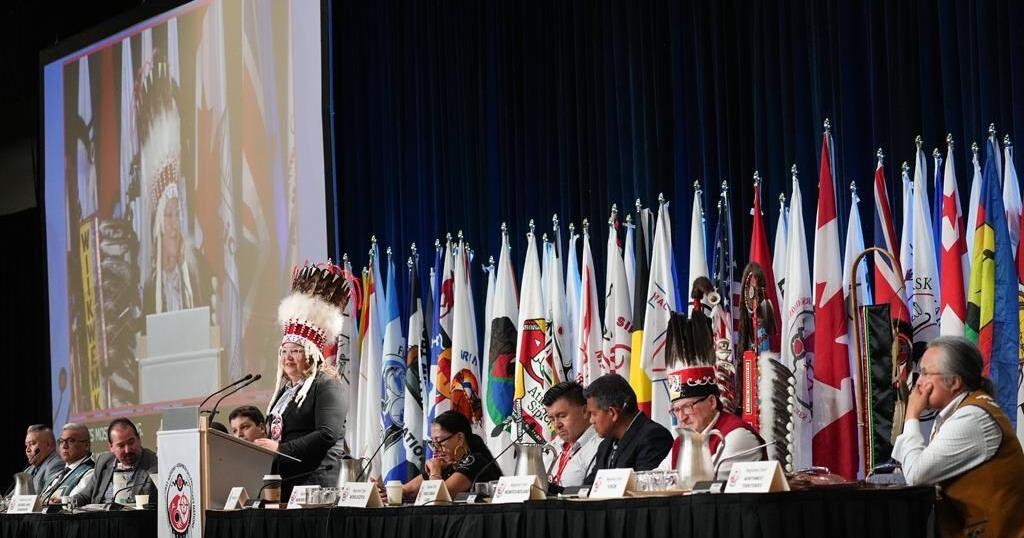VANCOUVER – More than a million British Columbians have already cast their provincial election ballots, smashing the advance voting record ahead of what weather forecasters say will be a rain-drenched election day in much of B.C., with snow also predicted for the north.
Elections BC said Thursday that 1,001,331 people had cast ballots in six days of advance voting, easily breaking a record set during the pandemic election four years ago.
More than 28 per cent of all registered electors have voted, potentially putting the province on track for a big final turnout on Saturday.
“It reflects what I believe, which is this election is critically important for the future of our province,” New Democrat Leader David Eby said Thursday at a news conference in Vancouver. “I understand why British Columbians are out in numbers. We haven’t seen questions like this on the ballot in a generation.”
He said voters are faced with the choice of supporting his party’s plans to improve affordability, public health care and education, while the B.C. Conservatives, led by John Rustad, are proposing to cut services and are fielding candidates who support conspiracy theories about the COVID-19 pandemic and espouse racist views.
Rustad has hammered the NDP on its handling of the toxic drug crisis that has cost more than 15,000 lives since a public health emergency was declared in 2016, as well as the province’s troubled health care system and a deficit that is forecast to hit $8.9 billion this fiscal year.
Rustad held no public availabilities on Thursday.
Elections BC said the record advance vote tally includes about 223,000 people who voted on Wednesday, the last day of advance polls, shattering the one-day record set on Tuesday by more than 40,000 votes.
The previous record for advance voting in a B.C. election was set in 2020 amid the COVID-19 pandemic, when about 670,000 people voted early, representing about 19 per cent of registered voters.
Some ridings have now seen turnout of more than 35 per cent, including NDP Leader David Eby’s Vancouver-Point Grey riding where 36.5 per cent of all electors have voted.
There has also been big turnout in some Vancouver Island ridings, including Oak Bay-Gordon Head, where 39 per cent of electors have voted, and Victoria-Beacon Hill, where Green Party Leader Sonia Furstenau is running, with 37.2 per cent.
Advance voter turnout in Rustad’s riding of Nechako Lakes was 30.5 per cent.
Total turnout in 2020 was 54 per cent, down from about 61 per cent in 2017.
Stewart Prest, a political science lecturer at the University of British Columbia, said many factors are at play in the advance voter turnout.
“If you have an early option, if you have an option where there are fewer crowds, fewer lineups that you have to deal with, then that’s going to be a much more desirable option,” said Prest.
“So, having the possibility of voting across multiple advanced voting days is something that more people are looking to as a way to avoid last-minute lineups or heavy weather.”
Voters along the south coast of British Columbia who have not cast their ballots yet will have to contend with heavy rain and high winds from an incoming atmospheric river weather system on election day.
Environment Canada said the weather system will bring prolonged heavy rain to Metro Vancouver, the Sunshine Coast, Fraser Valley, Howe Sound, Whistler and Vancouver Island starting Friday.
Eby said the forecast of an atmospheric weather storm on election day will become a “ballot question” for some voters who are concerned about the approaches the parties have toward addressing climate change.
But he said he is confident people will not let the storm deter them from voting.
“I know British Columbians are tough and they’re not going to let even an atmospheric river stop them from voting,” said Eby.
In northern B.C., heavy snow is in the forecast starting Friday and through to Saturday for areas along the Yukon boundary.
Elections BC said it will focus on ensuring it is prepared for bad weather, said Andrew Watson, senior director of communications.
“We’ve also been working with BC Hydro to make sure that they’re aware of all of our voting place locations so that they can respond quickly if there are any power outages,” he said.
Elections BC also has paper backups for all of its systems in case there is a power outage, forcing them to go through manual procedures, Watson said.
Prest said the dramatic downfall of the Official Opposition BC United Party just before the start of the campaign and voter frustration could also be contributing to the record size of the advance vote.
It’s too early to say if the province is experiencing a “renewed enthusiasm for voting,” he said.
“As a political scientist, I think it would be a good thing to see, but I’m not ready to conclude that’s what we are seeing just yet,” he said, adding, “this is one of the storylines to watch come Saturday.”
Overall turnout in B.C. elections has generally been dwindling compared with the 71.5 per cent turnout for the 1996 vote.
Adam Olsen, the Green Party campaign chair, said advance voting turnout indicates people are much more engaged in the campaign than they were in the weeks leading up to the start of the campaign in September.
“All we know … that people are excited to go out and vote early,” he said. “The real question will be does that voter turnout stay up throughout election night?”
The Greens were scheduled to hold a rally in Victoria Thursday with Olsen, Furstenau and environmentalist David Suzuki, who has endorsed the party.
This report by The Canadian Press was first published Oct. 17, 2024.
Note to readers: This is a corrected story. An earlier version said more than 180,000 voters cast their votes on Wednesday.

























